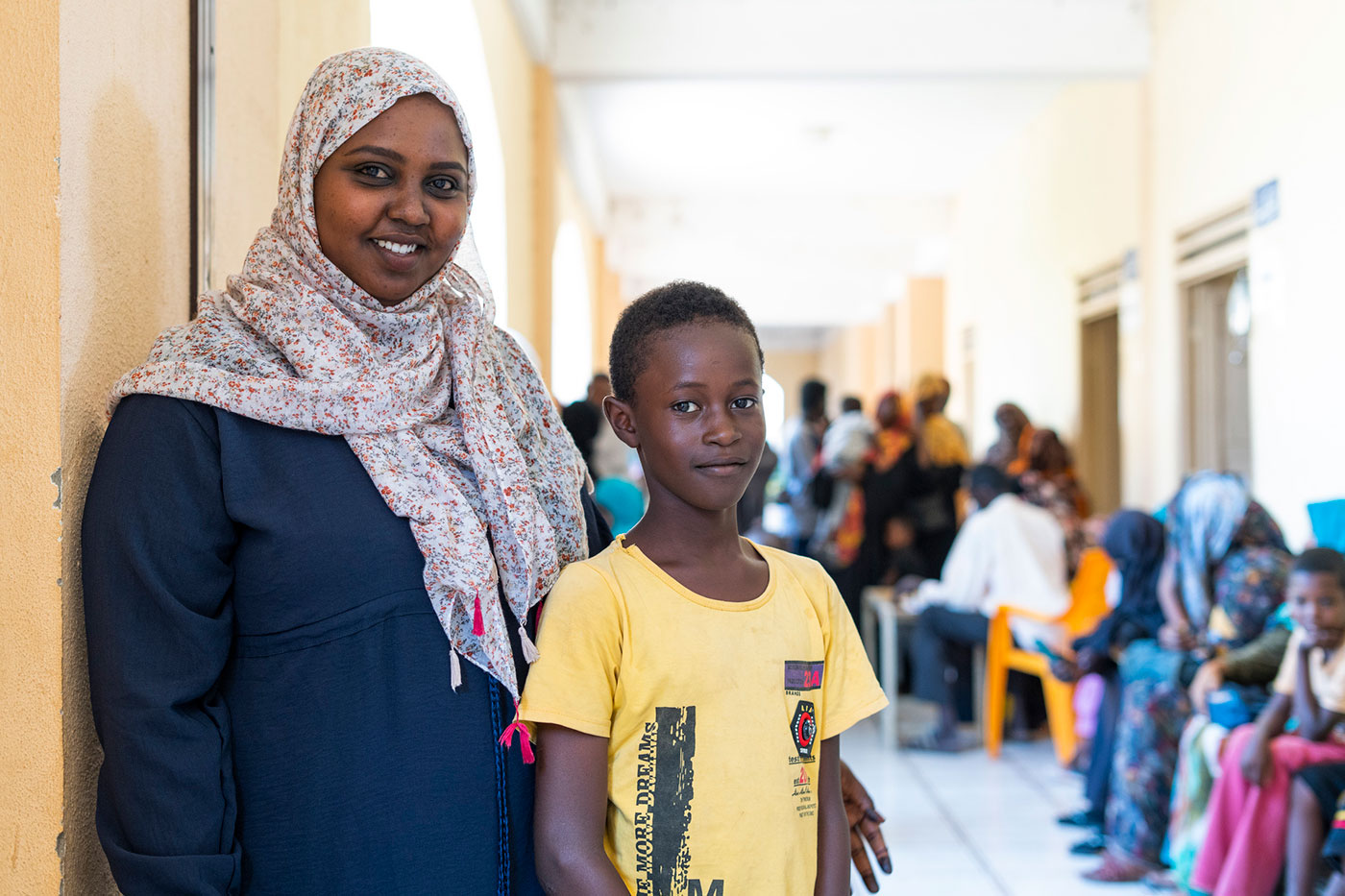 Photo credit: WHO / Ala Kheir
Photo credit: WHO / Ala Kheir
13 January 2025, Port Sudan, Sudan – World Bank, the World Health Organization (WHO) and the United Nations Children’s Fund (UNICEF) signed a US$ 82 million agreement to improve access to critical health services for more than 8 million vulnerable people across Sudan and strengthen the health system in the country.
More than 70% of hospitals and health facilities in conflict-affected areas in Sudan are non-operational. They have been damaged or destroyed during the conflict or lack supplies. Frontline workers, including nurses, doctors and other essential staff, have not been paid in months. The delivery of vaccine supplies and routine immunization activities have been hindered by security concerns and lack of access.
"The Sudan Health Assistance and Response in Emergencies (SHARE) project exemplifies WHO’s commitment to ensuring that communities in Sudan have access to vital health services, especially in times of crisis. By investing in preparedness and resilience, we are paving the way for a stronger, more sustainable health system," said WHO Representative in Sudan Dr Shible Sahbani, emphasizing the significance of the project.
“In Sudan, the systems providing vulnerable children and families with essential social services are on the brink of a collapse,” said UNICEF Representative for Sudan Sheldon Yett. “By working shoulder to shoulder, we can invest in rebuilding them and provide lifesaving health care and nutrition services to children who desperately need them amid the ongoing conflict.”
With support from the World Bank, UNICEF, WHO and partners on the ground will work together to address urgent health needs while laying the groundwork for long-term system improvements. The agencies will provide essential medicines; mentor and train health workers; help deliver a minimum package of maternal, newborn and child health and nutrition services; treat severe malnutrition; and strengthen vaccination campaigns and regular outreach to reach more vulnerable children and families in displaced and host communities. They will also support the delivery of health and nutrition services through community platforms and help survivors of gender-based violence through first line health care, including referrals to specialists.
Partners will also invest in enhancing disease surveillance systems, equipping emergency operations centres and training rapid response teams to strengthen health system preparedness and emergency response in vulnerable communities.
Note to editors:
Ongoing disease outbreaks are pushing Sudan’s already fragile health care system to breaking point and exacerbating weaknesses in sanitation and hygiene infrastructure. Limited access to safe water and adequate sanitation, especially in overcrowded displacement sites and camps, increases the risk of transmission. In Sudan, an estimated 3.4 million children under the age of 5 are at high risk of epidemic diseases, including measles, malaria, pneumonia, diarrhoeal diseases and cholera.
The latest Famine Review Committee report and new projections from the Integrated Food Security Phase Classification identify famine with reliable data in at least 5 areas of Sudan – Zamzam, Abu Shouk and Al Salam camps in North Darfur, and in the Western Nuba Mountains – for both residents and internally displaced persons. More than 24.6 million people across Sudan are now experiencing high levels of acute food insecurity (IPC Phase 3 or above). This includes 8.1 million in IPC Phase 4 (Emergency) and at least 638 000 people in IPC Phase 5 (Catastrophe).
The SHARE project is funded by the World Bank’s International Development Association through grants of US$ 19.5 million to WHO and US$ 62.5 million to UNICEF. The project is fully aligned with Sudan’s national health priorities, WHO’s global objectives to promote health equity, reduce health risks and improve overall population health and UNICEF’s health programme priorities.
For more information, please contact:
Loza Mesfin Tesfaye, Communications Officer, WHO Sudan,
Eva Hinds, Chief of Communication, UNICEF Sudan,


